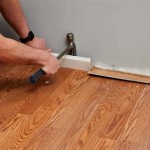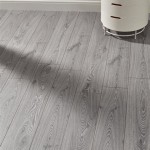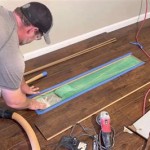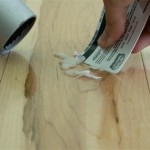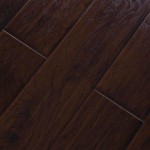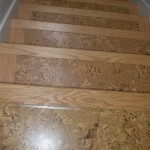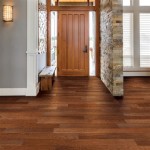Essential Aspects of Wood Flooring on Concrete Basements
Transforming your concrete basement into an elegant and inviting space with the warmth and sophistication of wood flooring can elevate your home's ambiance. However, installing wood flooring on a concrete basement requires meticulous attention to essential considerations to ensure durability and longevity.
1. Moisture Control:
Concrete is inherently porous, allowing moisture to seep through. This moisture can damage wood flooring, causing warping, buckling, and mold growth. Proper moisture control measures are crucial, including vapor barriers, waterproofing membranes, and dehumidifiers to create a dry environment for the flooring.
2. Leveling and Smoothing:
Concrete floors in basements may not be perfectly level or smooth. Before installing wood flooring, it is essential to level and smooth the surface using a leveling compound or self-leveling concrete. This ensures a stable base for the flooring and prevents uneven settling or gaps.
3. Underlayment Installation:
Underlayment serves multiple purposes beneath wood flooring. It provides cushioning, reduces noise transmission, and protects the flooring from moisture and temperature fluctuations. Installing a moisture-resistant underlayment that complies with the flooring manufacturer's specifications is highly recommended.
4. Flooring Choice:
Not all wood flooring is suitable for concrete basements. Moisture-resistant engineered hardwood with a stable core construction, such as click-lock or glue-down planks, is an ideal choice. These options can tolerate humidity and temperature variations better than solid wood flooring.
5. Acclimation Period:
Before installation, wood flooring should be acclimated to the basement's temperature and humidity conditions for at least 48 hours. This allows the wood to adjust to its new environment and minimize potential expansion or contraction after installation.
6. Installation Method:
Professional installation is highly recommended for wood flooring on concrete basements. Floating floors (glue-less) are not suitable due to moisture concerns. Glue-down or nail-down methods create a secure bond between the flooring and the underlayment, ensuring stability and longevity.
7. Maintenance and Care:
Regular maintenance and care are essential to preserve the beauty and durability of wood flooring in basements. Maintaining a consistent humidity level, using a dehumidifier if necessary, and promptly cleaning spills are crucial. Avoid excessive moisture and use appropriate cleaning products recommended by the flooring manufacturer.
Conclusion:
By addressing these essential aspects, you can confidently install wood flooring in your concrete basement, creating a warm and inviting space that enhances your home's aesthetic appeal and functionality. With proper planning, preparation, and care, wood flooring on a concrete basement can last for many years, adding warmth and value to your home.

Installing Wood Flooring Over Concrete Diy

What Is The Best Flooring To Put On A Concrete Basement Floor

How To Install A Wood Subfloor Over Concrete Rona

Laminate Flooring On Concrete Basement Floors Expert Installation Guide Csg Renovation

How To Install Vinyl Or Laminate Floors In A Basement Over Concrete Slab

Best Basement Flooring Options Forbes Home

How To Install A Wood Subfloor Over Concrete Rona

Laminate Flooring On Concrete Basement Floors Expert Installation Guide Csg Renovation

6 Inspiring Ideas For Basement Flooring In Portland

Lvp Flooring Installation How To Install Luxury Vinyl Plank In A Basement Diy
Related Posts

